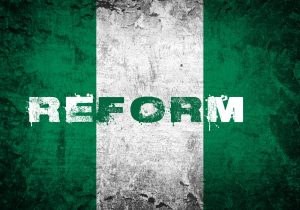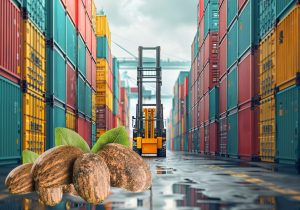The Social Contract
Based on the theory of social contract, the government and the governed are bound by an unwritten rule, where the governed provide resources to the government, with a valid expectation that the government deploys the resources for the common good of all. Over 250 years after this theory was propounded by Jean-Jacques Rousseau, a French philosopher, Nigeria appears not to have come to grasp with this fundamental concept of governance.
Taxation is the oldest form of revenue generation for governments, and represents the citizens’ contribution to the social contract of governance. In most developed countries, taxation is the largest and most sustainable form of revenue, representing as high as 36% of GDP in these advanced economies. This model is being replicated by other economies with varying degrees of success. In Emerging economies, tax revenue to GDP is about 26% while in sub Saharan Africa (SSA), its an average of 17%. However, SSA’s under-par performance can be principally linked to Nigeria’s abysmal tax collections. As the largest economy on the continent, Nigeria’s numbers have a pronounced effect on SSA. Nigeria’s tax revenue to GDP is about 6%, the lowest amongst emerging economies and even in SSA. Overall, Nigeria has the 12th lowest tax to GDP ratio in the world.
How Nigeria got it wrong on Tax
Interestingly, Nigeria’s tax to GDP ratio has remained within the 6% to 10% band for over 50 years, thus indicating that the country has not made any remarkable progress in revenue generation from taxation despite several fiscal reforms.
In our view, the abysmal performance of the government in raising tax revenue is attributable to three major factors.
The first factor is the clichéd Dutch Disease. Over the years, the three tiers of government have indolently relied on oil revenues to finance government expenditure. This indolent source of fiscal revenue has led to the neglect of other viable sources of revenue, particularly taxation from non-oil sources. Currently, as much as a third of all Nigerian states rely on federal allocations for between 80% – 90% of their fiscal revenues annually.
The second factor is the weak tax administration which has led to sleaze in the tax system amidst other structural issues like multiple taxation and incoherent tax codes.
But the most important factor has been the weak social contract. The loss of confidence in the state and the erosion of credibility of public institutions has created apathy amongst the citizenry. This attitude is a consequence of the poor performance of government in fulfilling its obligations to citizens and the chutzpah of sleaze in the public finances. Sadly, several tax reforms have failed to address this moral question of accountability and probity in public finances.
A Nigeria without oil
Agusto & Co has always argued that the undue-reliance on oil revenue by the government is unsustainable and portends long term fiscal risks. The extreme dependence on allocations from the federation account, has rendered several states economically unviable and begs to question the political wisdom which led to the duplication of states.
The macroeconomic headwinds of 2015 and 2016 driven by the drop in oil prices and production levels and the consequent effect on the revenue base of the country, exposed the economic flaws of most states—with over 30 states owing salaries and pensions—therefore re-emphasizing the critical need to improve the fiscal structure of these federating states. This will require greater investments to improve the Internally Generated Revenue (IGR) drive of these states.
This becomes more imperative in the face of the long term risks associated with commodity cycles. Oil revenue, has proven to be volatile and is expected to be fully depleted in the next half century, at which point Nigeria’s population is expected to be over 500 million people. Therefore, it is expedient to diversify the revenue of the country by growing the tax base.
The VAIDS Amnesty
Realizing the need to diversify the revenue base of the country, in 2017 the Vice President signed an executive order—Voluntary Assets and Income Declaration Scheme (VAIDS)—granting a nine month waiver to individuals and corporate organisations to voluntarily declare assets and income to tax authorities, in exchange for a waiver on penalties and late fee charges. Thus individuals and corporates can now make voluntary declaration of incomes earned or assets acquired in the past but were not subject to tax i.e. personal income tax (PIT), company income tax (CIT), petroleum profit tax (PPT) and capital gains tax (CGT).
This move by the government aims to bring more individuals into the tax net and ultimately grow the tax revenue of government at all levels. Given the success of similar programs in India, which added about 360,000 individuals to the tax net and yielded an estimated $1.2 billion to the government, it’s expected that this would have a similar impact in Nigeria.
The executive order with an initial effective date of July 1st, 2017 to March 31st, 2018, has now been extended to June 30th, 2018 due to a surge in VAIDS applications and the over ₦20 billion recovered.
Figure 1: Revenue as a % of GDP

Source: Federal Ministry of Finance
A post-VAIDS Nigeria
The tax revenue of a state and the finances of the government are contingent on the prosperity of businesses operating in the economy of the state. Thus astute policy makers seek to implement policies that spur economic growth in a bid to boost the finances of the state. This economic argument is an ageless one and was first propounded by Ibn Khaldun, a Tunisian philosopher in 1377. Over 600 years later, Nigeria still grapples with this lesson.
The VAIDS window presents an opportune season for tax payers to improve their tax health, while tax defaulters have an amnesty to right their wrongs. However, as Ibn Khaldun argued, VAIDS also provides an opportunity for the Nigerian state to understand the nexus between the prosperity of businesses and the tax returns to the government.
Thus structural bottlenecks and red tape that stymie the growth of businesses need to be addressed. Where government cannot provide the enabling infrastructure to businesses, it must be open to ceding these ventures to the private sector. By running a statist economic model where the government becomes an operator of businesses, there is a disincentive to grow tax revenue as government prioritises the profitability of State Owned Enterprises (SOE) over taxes. Thus, with the lowest Revenue to GDP ratio in Africa and on the other, SOEs (outside NNPC) which collectively contribute less than ₦200 billion annually to the national treasury, Nigeria loses inadvertently on these two fiscal objectives of raising revenues through taxes and dividends from SOEs. The end result is the mounting fiscal deficit and weak public spending, which leaves Nigeria once again behind other SSA peers (see Figure 2).
As the VAIDS program ends its course, there must be a concerted effort to sustain its gains. This must entail an uncensored discourse on the current economic model. Nigeria will have to do two major things to correct the failings of the statist economic model. The state must reduce its ownership of businesses and promote free enterprise and competition. This will help expand the tax base, by propping up more income generating businesses that have tax paying capacity. Secondly, the post-VAIDS narrative needs to focus on accountability of public finances. This will require greater investments in institution building. The perception of corruption in the public sector creates a deterrent to tax payers who seem torn between remitting to Caesar what is his, and demanding accountability from Caesar.
Figure 2: Expenditure as a % of GDP

Source: Federal Ministry of Finance






